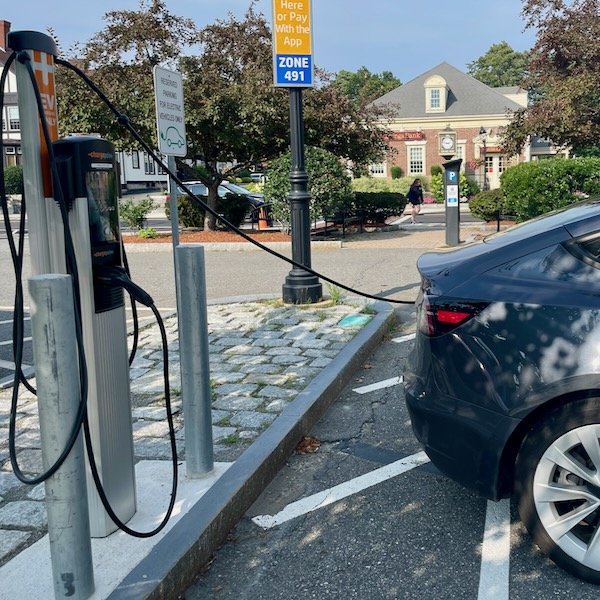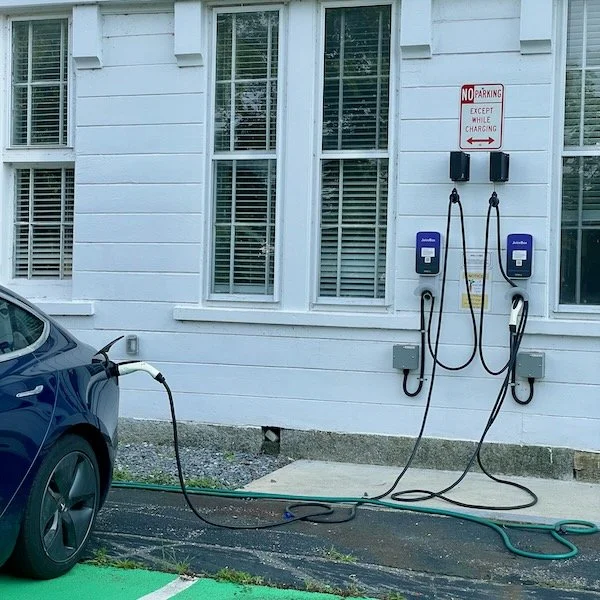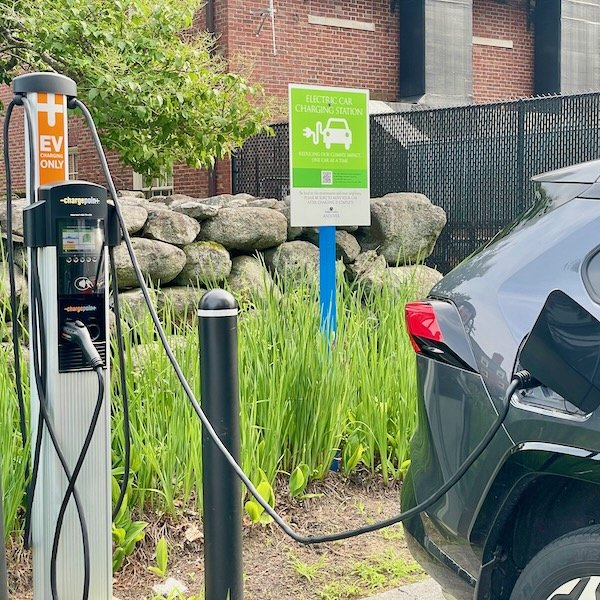Electrify Your Ride
Why drive an electric car?
EVs provide:
An easy way to reduce your carbon footprint
Great acceleration
No exhaust smells
Less Maintenance
No gas station stops
Affordability!
Replace your gas powered car with an Electric Vehicle (EV) and experience better performance, cut fuel and maintenance costs in half, and never visit a gas station again.
Emissions over the lifetime of the average medium-size electric vehicle in the U.S. are already lower than comparable gasoline cars by 60-68%, which includes the production of the batteries. Additionally, as the electricity mix continues to decarbonize, the life-cycle emissions gap between EVs and gasoline vehicles increases substaintially.
EVs can get 100MPG equivalent with ease.
If you are someone who drives long distances consider getting a car with a high range, a range is how far your vehicle will go with one full charge. The Tesla Model S has one of the highest ranges at 402 miles. The more affordable Chevy Bolt has a range of 259 miles. Both of these are good ranges! A typical Andover to Boston commute is 24 miles each way, so both cars can easily cover that distance and more on one full charge.
EV’s are just better automobiles. Learn more about EVs in our Drive Electric! Take Action blog.
Have you seen these chargers around town? On a warm mid-July day in 2023 all were in use.
Considerations when selecting an EV
How far you drive each day,
Your budget
Size preference
Whether you have access to a charger or a place to install one where you park your car.
Check out Electrify Now for lots more information on driving electric!
FAQs
How will I charge?
It's a matter of getting used to plugs instead of gas pumps and planning for a little extra time if you want to charge while on a trip. In fact most EV owners charge at home over 80 percent of the time. For some EV owners, this could easily be 100 percent.
So I need an at-home charger?
You want to be charging at home as much as possible because charging can be accomplished when the vehicle is otherwise parked. An electrician can install a charger for you if you have dedicated parking. If you have an HOA, talk with your association about installing a shared charger.
Check out this Electrify Now video on At-Home Charging.
For more information on at-home charging see the Department of Energy’s Alternative Fuels Data Center.
If I need to charge on a trip where are chargers located and how do I find them?
There are EV chargers in public parking lots, work places, shopping malls, restaurants, hotels, and highway rest areas. Some paid parking lots offer charging at no additional cost beyond the cost to park.
Charge Point and EV Go operate networks of Charging Stations. Download their apps to a smartphone, establish an account, use the map.
You can find locations with websites and apps such as PlugShare. and PlugShare offers a map and an app showing all publicly available Charging Stations, regardless of brand or operator.
Are Electric Vehicles really coming?
Massachusetts law prohibits new gasoline cars being sold after 2035. UBS says electric cars will be 50% of global new car sales by 2030. In 2020 Tesla made 500,000 electric cars. VW aims to make 1.5 Million EVs per year by 2023.
Are Electric Vehicles expensive to maintain?
No, they have fewer moving parts than a gasoline car. And no exhaust pipes, muffler, catalytic converter, or oil changes.
But I worry that I need a gas-powered vehicle for our long family vacation.
Don't forget about renting a car or van as a solution! Why drive a gas hog around all the time for rare needs? Some EV owners have discovered that in fact they rarely need longer range and the one time in 4 years that they did, they rented.
What’s the “fuel” cost per 100 miles?
That varies depending on the car model. For a typical sedan-type vehicle, approximately $7.54 for EV vs $12.00 for gas.
For EVs this is based on an average of 29 cents per kWh in Massachusetts (we have the 4th highest electricity rates in the U.S. according to eia.gov) and 100 miles per 29 kWh (current EVs range from 24 to 87kWh per 100 miles with the Tesla Model 3 having the lowest kWh per mile). 2023 models were not included in the analysis.
For gas cars this is based on an average of $4 per gallon in Massachusetts and 33 miles per gallon or 3 gallons per 100 miles.
Check out the U.S Department of Energy’s Vehicle Cost Calculator to compare the total cost of ownership and emissions for cars you are considering.
Considering the carbon content of today’s grid electricity, what’s the saving?
EVs do not directly emit carbon dioxide. And even though many electric generating stations do, gasoline cars emit about 3X as much carbon dioxide per mile driven as EVs do. In addition, as the grid becomes more renewable the carbon dioxide emitted due to EV charging will continue to decline.
Check out How Clean is Your Electric Vehicle to find out how much global warming pollution a specific EV is responsible for.
Have more questions? Email us and let us know!





